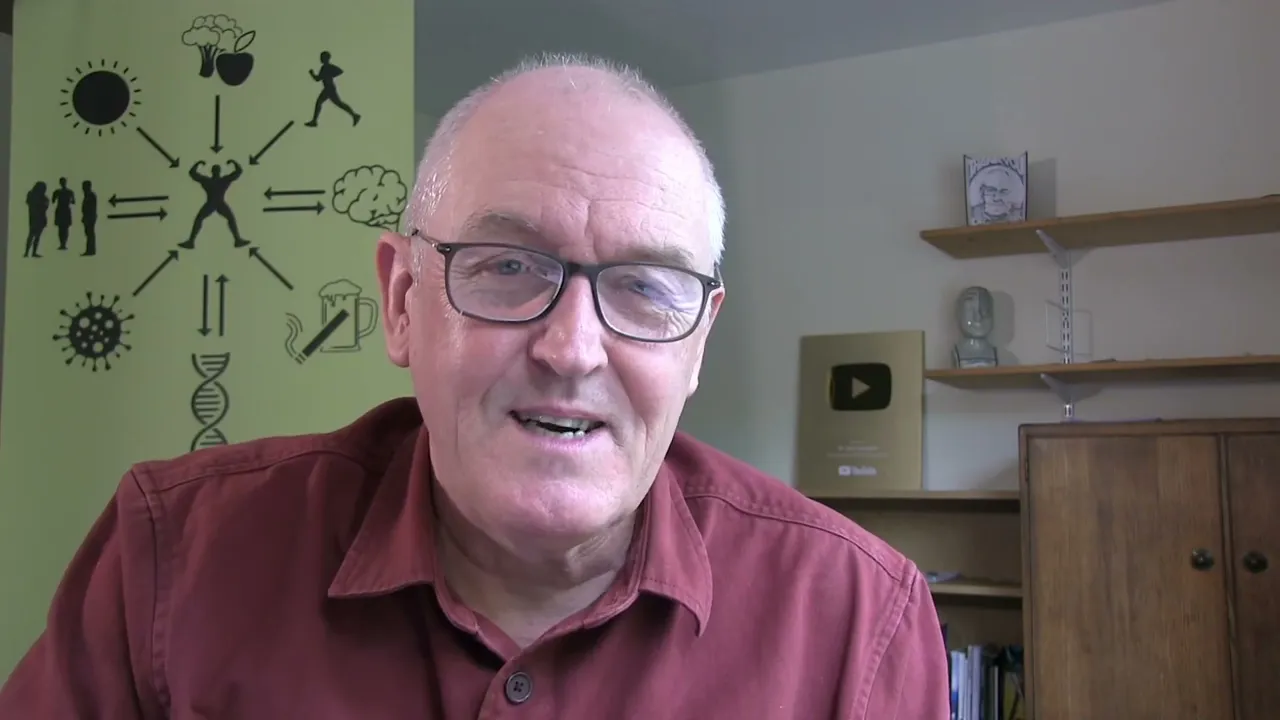Pfizer's Paxlovid Covid REBOUND Problem Is Confusing Scientists
Kim Iversen reacts to Stephen Colbert's Covid diagnosis.
The U.S. Food and Drug Administration issued an EUA for the emergency use of Paxlovid for the treatment of mild-to-moderate coronavirus disease 2019 (COVID-19) in adults and pediatric patients with positive results of direct severe acute respiratory syndrome coronavirus 2 (SARS-CoV-2) viral testing, and who are at high risk for progression to severe COVID-19, including hospitalization or death.
The 5-day treatment course of PAXLOVID should be initiated as soon as possible after a diagnosis of COVID-19 has been made, and within 5 days of symptom onset. Should a patient require hospitalization due to severe or critical COVID-19 after starting treatment with PAXLOVID, the patient should complete the full 5-day treatment course per the healthcare provider’s discretion.
According to clinical trial data, Paxlovid had an 89% reduction in the risk of hospitalization and death.
The CDC says the risk for covid increases steadily as you age, and it’s not just those over the age of 65 who are at increased risk for severe illness. The CDC says A person is fully vaccinated two weeks after receiving all recommended doses in the primary series of their COVID-19 vaccination. A person is up to date with their COVID-19 vaccination if they have received all recommended doses in the primary series and one booster when eligible. Getting a second booster is not necessary to be considered up to date at this time.
According to the CDC people who were unvaccinated and did not have prior COVID-19 infection remain at the highest risk of infection and hospitalization. Those who were previously infected, both with or without prior vaccination, had the greatest protection. Additionally, a study by The Cleveland Clinic found that both previous infection and vaccination provide substantial protection against COVID-19. Vaccination of previously infected individuals does not provide additional protection against COVID-19 for several months, but after that provides significant protection at least against symptomatic COVID-19.
The CDC says layered prevention strategies — like staying up to date on vaccines and wearing masks — can help prevent severe illness and reduce the potential for strain on the healthcare system. Everyone ages 2 years and older should properly wear a well-fitting mask indoors in public in areas where the COVID-19 Community Level is high, regardless of vaccination status.
According to Pfizer and the CDC, potential side effects from the vaccine include pain, redness, or swelling at the injection site. Other side effects could include tiredness, headache, muscle pain, fever, chills, and nausea. In rare cases, people have experienced serious health events after the COVID-19 vaccination. Any health problem that happens after vaccination is considered an adverse event.
According to the CDC: Although the overall risks are low, if you are pregnant or were recently pregnant, you are more likely to get very sick from COVID-19 compared to people who are not pregnant. Evidence continues to build showing that COVID-19 vaccination before and during pregnancy is safe and effective. It suggests that the benefits of receiving a COVID-19 vaccine outweigh any known or potential risks of vaccination during pregnancy. COVID-19 vaccines cannot cause COVID-19 infection in anyone, including the mother or the baby. None of the COVID-19 vaccines contain live virus. Vaccines are effective at preventing COVID-19 in people who are breastfeeding. Recent reports have shown that breastfeeding people who have received mRNA COVID-19 vaccines have antibodies in their breastmilk, which could help protect their babies. More data are needed to determine what level of protection these antibodies may provide to the baby. There is currently no evidence that any vaccines, including COVID-19 vaccines, cause fertility problems (problems trying to get pregnant) in women or men.
About Rising:
Rising is a weekday morning show with bipartisan hosts that breaks the mold of morning TV by taking viewers inside the halls of Washington power like never before. The show leans into the day's political cycle with cutting edge analysis from DC insiders who can predict what is going to happen. It also sets the day's political agenda by breaking exclusive news with a team of scoop-driven reporters and demanding answers during interviews with the country's most important political newsmakers.
Follow Rising on social media:
Website: Hill.TV
Facebook: facebook.com/HillTVLive/
Instagram: @HillTVLive
Twitter: @HillTVLive




![Pfizer Scientists: ‘Your [COVID] Antibodies Are Better Than The [Pfizer] Vaccination.' #ExposePfizer](https://video.ugetube.com/thumb/On5RYFbcxWY_HQ8Bh7Qz9vVODGT.jpg)
![Pfizer Scientists: ‘Your [COVID] Antibodies Are Better Than The [Pfizer] Vaccination.' #ExposePfizer](https://video.ugetube.com/thumb/On5RYFbcxWY_77dwnr9ED1vnuVF.jpg)
![Pfizer Scientists: ‘Your [COVID] Antibodies Are Better Than The [Pfizer] Vaccination.' #ExposePfizer](https://video.ugetube.com/thumb/On5RYFbcxWY_w9DeVpZW11nE32Y.jpg)
![Pfizer Scientists: ‘Your [COVID] Antibodies Are Better Than The [Pfizer] Vaccination.' #ExposePfizer](https://video.ugetube.com/thumb/On5RYFbcxWY_rRFvnoWfbhZMvJ8.jpg)
![Pfizer Scientists: ‘Your [COVID] Antibodies Are Better Than The [Pfizer] Vaccination.'](https://video.ugetube.com/upload/photos/2021/10/MTE5DY84D7gMIrXyK7IH_05_552a92a12849f4fed0876b4497957a48_image.jpg)
![Pfizer Scientists: ‘Your [COVID] Antibodies Are Better Than The [Pfizer] Vaccination.' #ExposePfizer](https://video.ugetube.com/thumb/On5RYFbcxWY_583XJRmwRwYQTPP.jpg)
![PART 4: Pfizer Scientists: ‘Your [COVID] Antibodies Are Better Than The [Pfizer] Vaccination.' #ExposePfizer](https://video.ugetube.com/thumb/On5RYFbcxWY_3OLPk1kr9pxTH9v.jpg)
![Pfizer Scientists ‘Your [COVID] Antibodies Are Better Than The [Pfizer] Vaccination.' #ExposePfizer](https://video.ugetube.com/upload/photos/2021/10/N54tWOm3BVz4BA2SHpON_05_88bfbdf751612c69749b9d65ae327cb9_image.jpeg)
![Project Veritas - Part 4: Pfizer Scientists: ‘Your [COVID] Antibodies are Probably Better than the [Pfizer] Vaccination’](https://video.ugetube.com/upload/photos/2021/10/Arw2NKrXoczjdYeFYSMn_05_f98e146dcb8de1efce372f615679753d_image.jpg)
![Project VERITAS Expose Pt4: PFIZER SCIENTISTS:‘YOUR [COVID] ANTIBODIES ARE BETTER THAN THE [PFIZER] VACCINATION](https://video.ugetube.com/upload/photos/2021/10/k1nKPfNDKFpGEdpgnpqk_05_d4b9ad8c96cf772109436e81f554f073_image.jpg)








